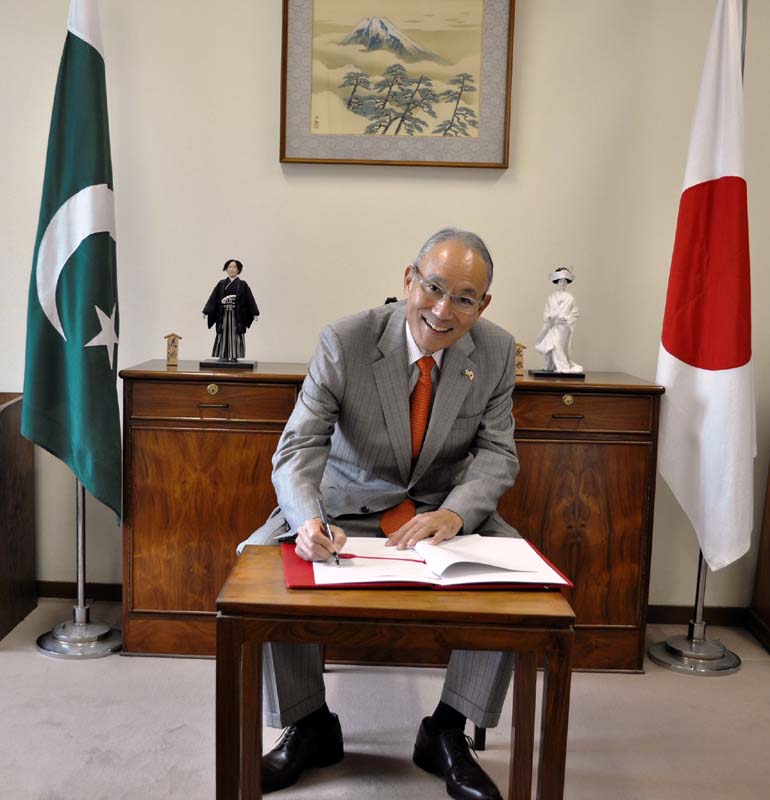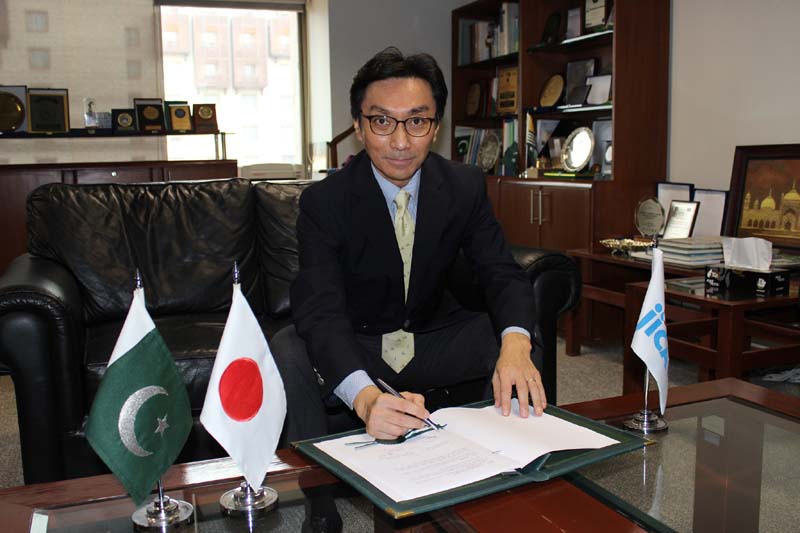
Japan provides generous aid for health, scholarship
Newswire
Islamabad: Japan this week extended a grant assistance of JPY3,445 million (approx. US$31.4 million) to Pakistan for the extension of maternal and child health care facilities in Sindh.
Notes to this effect were signed and exchanged between MATSUDA Kuninori, Ambassador of Japan to Pakistan and Zulfiqar Haider, Additional Secretary of the Ministry of Economic Affairs, in Islamabad.
Subsequently, Grant Agreement was signed and exchanged between Mr. FURUTA Shigeki, Chief Representative of JICA Pakistan Office and Ms. Syeda Adeela Bokhari, Joint Secretary of the Ministry of Economic Affairs.

Under this project, a new maternal and child health center will be established at Liaquat University of Medical & Health Sciences (LUMHS), Jamshoro, which is a public medical institution serving as the regional hub hospital in Hyderabad district. The maternal and child health center will have the departments of obstetrics and pediatrics, including a labor room, an obstetrics ward, a neonatal intensive care unit, a maternal and fetal intensive care unit, a laboratory and outpatient consultation rooms. In addition, around 120 items of medical equipment including newborn incubators and ultrasonic diagnostic device are to be installed.
The project is scheduled to be completed by August 2024. With the opening of the center, access to maternal and child health services in the area will be substantially improved. For example, three years after completion, the maternal and fetal intensive care unit will have nearly 100 patients and the neonatal intensive care unit will have more than 400 patients annually. In addition, the annual number of deliveries and outpatients will also increase significantly. As a result, local patients will not have to travel a long distance to Karachi.
For decades, Japan has put a priority on the health sector in the economic and social development of Pakistan, such as enhancement of maternal and child health, polio eradication, routine immunization and counter-COVID-19 measures.
In the last decade prior to the project in Jamshoro, Japan has implemented the following projects in Karachi and Islamabad in terms of maternal and child health:
- The Project for the Extension of Intensive Care at Maternal and Child Health Care Centre and Children’s Hospital in Pakistan Institute of Medical Sciences (PIMS) (April 23, 2019, approx.$33 million)
- The Project for the Improvement of Child Health Institute in Karachi (December 21, 2012, approx. $13 million)
Furthermore, Japan has been supporting the Polio Eradication program in Pakistan since 1996. The grant and loan contribution from Japan has amounted to $226.37 million.
As far as COVID-19 is concerned, Japan has extended a total of $23.5 million in grant to Pakistan for supplementing its counter-COVID-19 measures as follows:
- Feb 2020: Delivery of diagnostic kits
- Apr-May 2020: Disbursement of a total of $7.41 million to UNICEF, IOM, IFRC, UNHCR and UNOPS for providing hygiene items, training health workers, providing alternative learning opportunities etc.
- Dec 2020: Grant Assistance of $9.5 million to NDMA for procuring medical equipment.
- Mar 2021: Grant Assistance of $6.59 million to UNICEF for improving vaccine cold-chain.
In addition to the above, Japan and Pakistan agreed on debt deferral amounting to \40 billion (approx. $370 million) for making fiscal space to fight COVID-19 in Pakistan. Through JICA projects, personal protective equipment and masks were provided to PIMS, WHO Polio Laboratory (Islamabad), and immunization project workers in KP province.
Ambassador MATSUDA added, “Provision of health and medical service is the most basic human necessities in every country across the world. Among them, women and children are still in a vulnerable position, which is reflected in the high maternal and infant mortality rate in Pakistan. Japan will continue to provide assistance that will directly benefit vulnerable people in Pakistan.” Mr.FURUTA also remarked, “A number of care facilities to treat mothers and babies with complications is very limited in Sindh. As a result, patients are concentrated in advanced medical facilities. This project will not only alleviate the pressure of tertiary hospitals in Karachi and Hyderabad, but also open up opportunities for families from all over southern part of Sindh, with improved accessibility and better chances of saving lives.”
